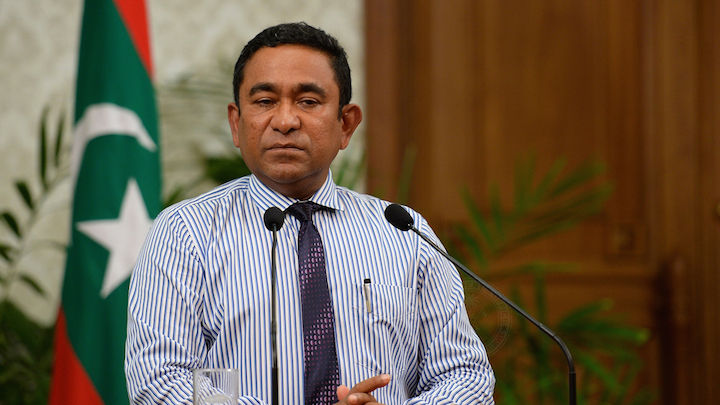MDP calls for President Yameen to face investigation over Maldives biggest ever corruption scandal
The MDP said it had received documents via email that appear to show Yameen is “equally involved” in the corruption involving his former deputy Ahmed Adeeb and the state tourism promotion firm Maldives Marketing and Public Relations Corporation.

31 Jan 2016, 09:00
The main opposition Maldivian Democratic Party has called for the investigation of President Abdulla Yameen for alleged connections to what the anti-graft watchdog has called the Maldives’ biggest ever corruption scandal.
The MDP said it had received documents via email that appear to show Yameen is “equally involved” in the corruption involving his former deputy Ahmed Adeeb and the state tourism promotion firm Maldives Marketing and Public Relations Corporation.
More than US$205million received by MMPRC was “distributed to other private companies through illegal means,” according to the documents shared over email, the party said.
The beneficiaries is said to include MPs and top government officials.
Become a member
Get full access to our archive and personalise your experience.
Already a member?
Discussion
No comments yet. Be the first to share your thoughts!
No comments yet. Be the first to join the conversation!
Join the Conversation
Sign in to share your thoughts under an alias and take part in the discussion. Independent journalism thrives on open, respectful debate — your voice matters.




